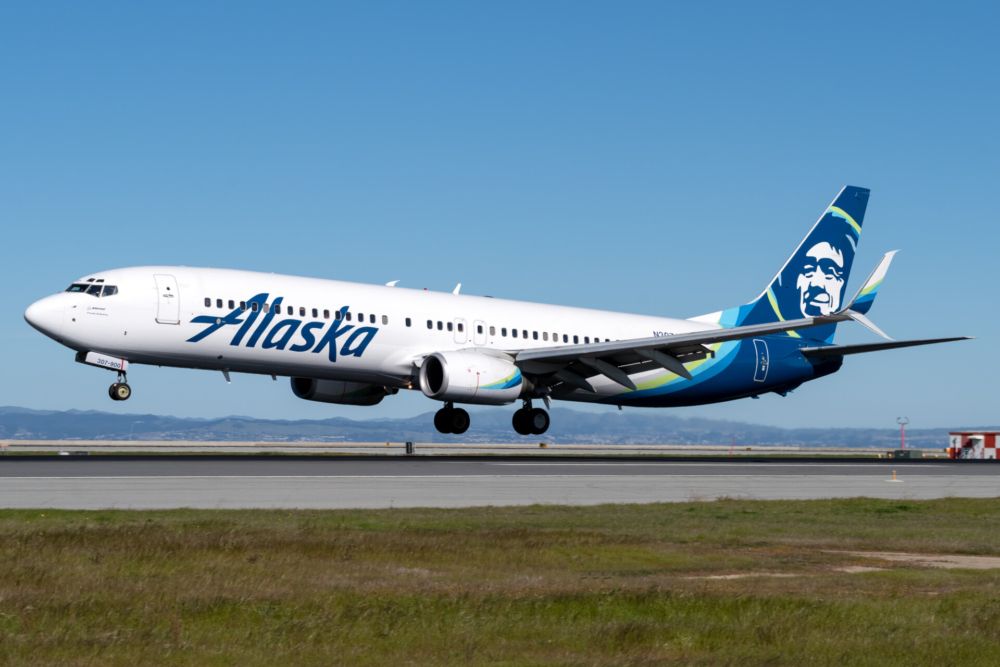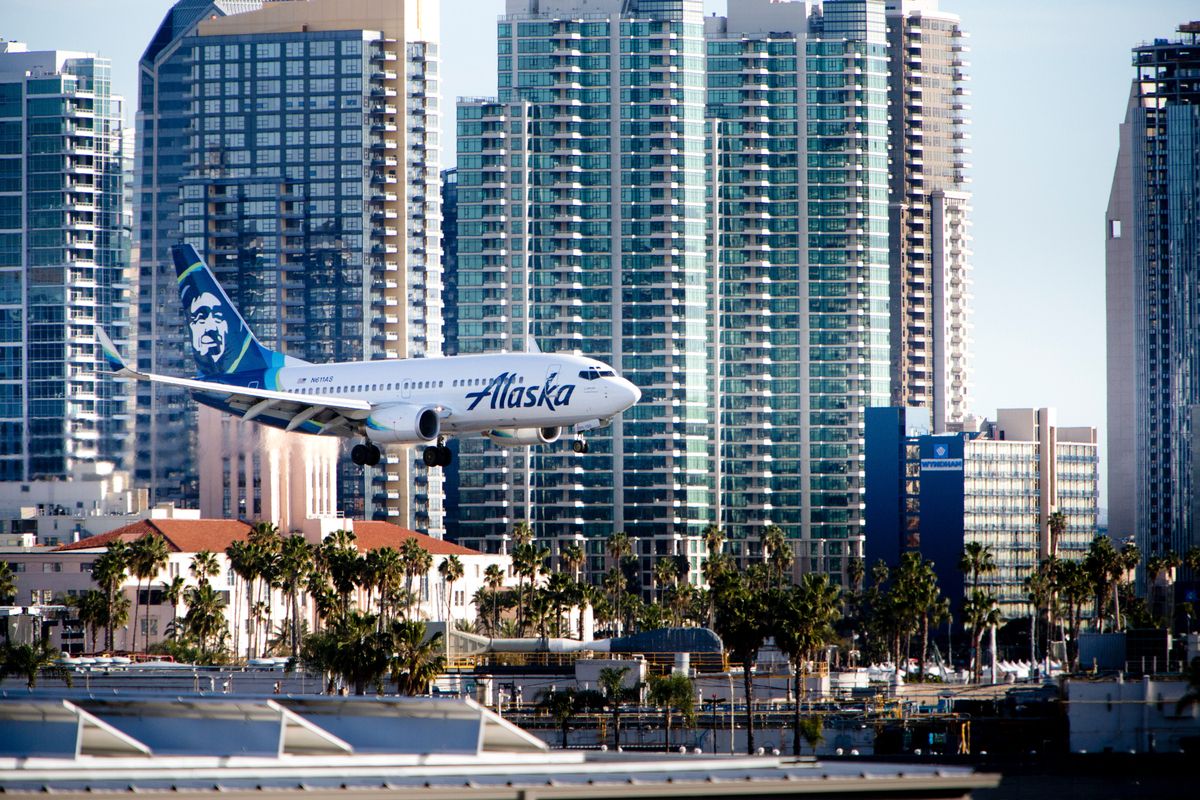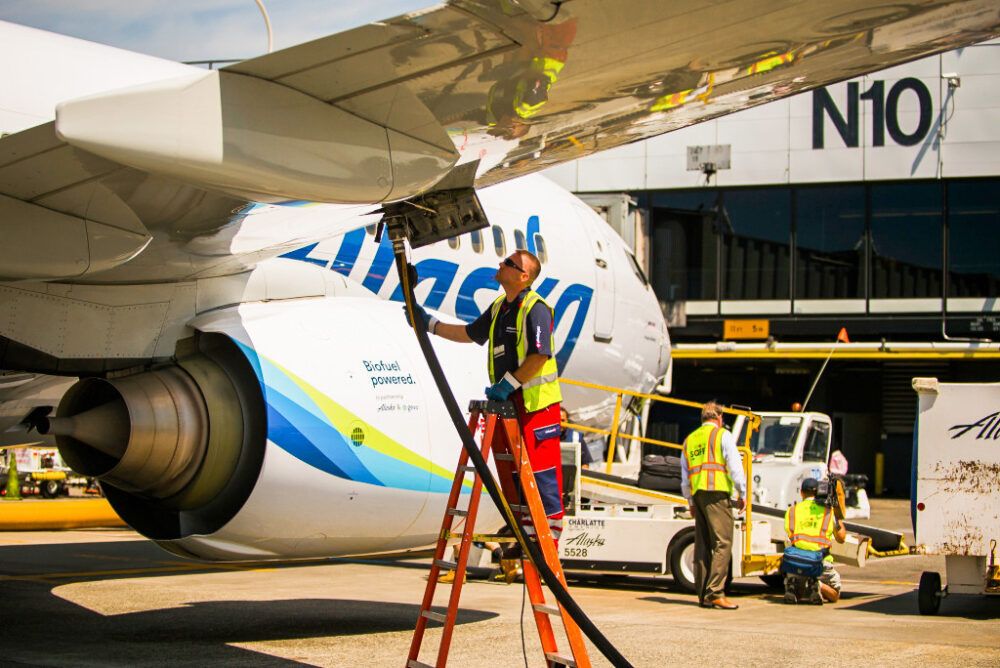Alaska Airlines has announced a new sustainability initiative to advance the use of sustainable aviation fuel (SAF). The airline's 'Ever Green' program will see increased engagement with corporate partners, including SAF credits, improving awareness and sharing advancements. We explore everything you need to know below.
Alaska launches new SAF program
Alaska Airlines has launched its new Ever Green sustainability program that will involve working with corporate partners to expand SAF usage and increase education and awareness on the topic. The airline's latest sustainability drive follows a program launched with Microsoft in 2020 to tackle corporate business travel emissions.
Diana Birkett Rakow, Senior Vice President of Public Affairs and Sustainability, said,
"Launching this program is another step toward our net-zero goal and an important step to bringing SAF to scale. While SAF is imperative to aviation’s decarbonization journey, there are multiple barriers we must overcome to make SAF commercially viable at scale. We believe these barriers are best addressed when we work together within the aviation community and across sectors."
This new initiative focuses particularly on business travel but has a broader goal of facilitating knowledge-sharing and collective action on the use and development of SAF. Earlier this month, Alaska Airlines finalized a deal for 185 million gallons of SAF from US-based provider Gevo as part of a partnership that stretches back to 2016.
Boeing among corporate partners
Partners involved in the Ever Green program include Boeing, Microsoft and Washington State University (WSU). Boeing and WSU have been designated as 'aviation and academic value chain partners' who will share advancements in knowledge with corporate partners.
Sheila Remes, Boeing Vice President of Environmental Sustainability, said,
"We are proud to build on our long-standing partnership with Alaska, along with other corporate and academic leaders like Microsoft and WSU, to help catalyze the scaling of sustainable aviation fuel. We will need 700-1,000 times increase in the amount of SAF if we are to meet the industry’s commitment to net-zero by 2050 and partnerships and new ideas like these are critical to meeting that goal."
Along with purchasing SAF credits, partners will "collaborate to advance sustainability in business travel, increase education and awareness, and identify and act on opportunities for collective action."
Rakow added,
"Our goals with this program are to support our customers’ sustainability goals by providing SAF credits, to continue increasing awareness of the barriers and opportunities to advancing SAF, and to leverage the knowledge of this growing community to accelerate our collective progress."
On Thursday, Alaska added professional services firm Deloitte as a partner in the program. The company has pledged to reduce its emissions from business travel by 1,050 metric tons of carbon dioxide.
Discover more aviation news with Simple Flying.
SAF makes up less than 1% of fuel
A primary goal of the Ever Green program is to explore ways to make SAF more commercially viable. While SAF is capable of reducing carbon emissions by up to 80% over its lifecycle, its current availability is less than 1% of global fuel needs.
Alaska Airlines said,
"Through the program, Alaska intends to expand understanding of and action to address some of the key barriers to scaling SAF production such as feedstock accessibility, facilities, transportation and storage, pricing, engine infrastructure and demand from operations and customers."
Sustainable fuels are also considerably more expensive than jet fuel. Simple Flying took a closer look at how SAF can become cost competitive against conventional jet fuel, noting that SAF costs more than double the price of A1 fuel.
Last year, Alaska Airlines announced its five-step goal to reach net-zero by 2040, which includes sustainable aviation fuel, high-quality carbon offsetting programs and fleet renewal.
Do you think sustainable aviation fuel (SAF) will be an important part of the industry in ten years' time? Let us know your predictions in the comments.



